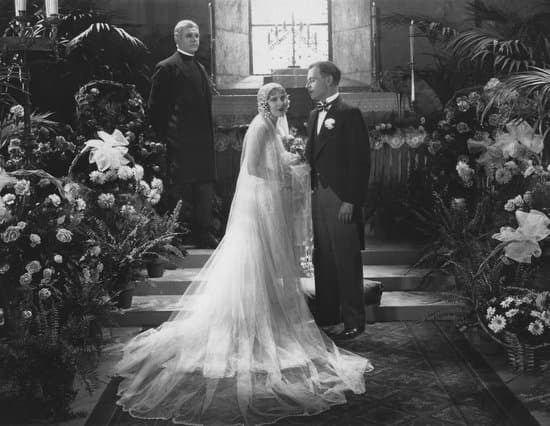
Planning a wedding can be both exciting and overwhelming, and one aspect that deserves thoughtful consideration is the wedding invitation. Understanding wedding invitation etiquette is crucial to setting the tone for your special day and ensuring that guests feel valued and respected. From addressing envelopes to crafting the perfect message, there are many do’s and don’ts to consider when it comes to wedding invitations.
When it comes to wedding invitation etiquette, attention to detail is key. The way you address your invitations, decide on plus ones, handle RSVPs, and accommodate dietary restrictions all play a part in making your guests feel welcomed and appreciated. In this article, we will delve into these aspects of wedding invitation etiquette and provide you with the guidance you need to navigate this important part of wedding planning.
Whether you’re sending out traditional paper invitations or opting for modern e-vites, understanding the dos and don’ts of wedding invitation etiquette is essential. From addressing envelopes properly to crafting a heartfelt message, each decision will contribute to the overall experience for both you as the couple and your guests. So let’s explore how to handle these details with grace and thoughtfulness.
The Dos and Don’ts of Addressing Wedding Invitations
Addressing wedding invitations can be a delicate task, as it sets the tone for your special day and reflects the level of formality you wish to convey. It’s important to follow certain dos and don’ts to ensure that your wedding invitations are both respectful and accurate.
The Dos
When addressing wedding invitations, do use titles and full names. For married couples, list the husband’s name first followed by the wife’s name. If the couple has different last names, list them alphabetically. For unmarried or single guests, make sure to include “and Guest” if they have been given a plus one. It’s also acceptable to use “Ms.” instead of “Miss” when addressing an adult woman.
The Don’ts
When addressing wedding invitations, don’t use abbreviations or nicknames. It’s important to be formal and use proper titles such as Mr. Mrs. Dr. etc. Avoid using “& family” on the outer envelope, as this can be seen as too informal for a wedding invitation. Additionally, refrain from including children’s names on the inner envelope unless they are specifically invited.
Following these dos and don’ts when addressing wedding invitations will ensure that your invitations are respectful, clear, and properly represent the formality of your special day. By paying attention to these details, you can set the tone for your wedding and make your guests feel honored by the invitation they receive.
Timing
When it comes to the timing of sending out wedding invitations, it is important to adhere to proper etiquette in order to ensure that your guests have enough time to plan and respond. Sending out wedding invitations too early may result in them being misplaced or forgotten, while sending them out too late could lead to scheduling conflicts for your guests.
Therefore, finding the perfect timing for sending out your wedding invitations is crucial for a successful and well-attended event.
Typical Timeline
Traditionally, wedding invitations should be sent out six to eight weeks before the big day. This timeline allows guests ample time to RSVP, make travel arrangements, and select gifts from the couple’s registry. For destination weddings or events that require extensive travel, it is appropriate to send out save-the-date cards at least six months in advance and follow up with formal invitations three months prior.
Exceptions and Considerations
There are certain circumstances that may warrant deviations from the standard timeline. For example, if your wedding falls on a holiday weekend or during a peak vacation season, it is advisable to send out invitations earlier to ensure that your guests can secure their attendance and lodging accommodations. On the other hand, if you are having an intimate gathering with only close family and friends, you might opt for a shorter lead time between sending invitations and receiving RSVPs.
Final Reminders
It is also important to set an RSVP deadline on the invitation so that you have ample time to finalize details with vendors and accommodate any last-minute additions or changes. Additionally, considering mailing times and potential delays is essential when determining when to send out wedding invitations. By adhering to these guidelines while also taking into account individual circumstances, you can ensure that your guests receive their invitations with enough time for thoughtful consideration and timely responses.
Making It Personal
When it comes to wedding invitations, adding personal touches can make all the difference. Customizing your wedding invitations not only adds a special and unique element to your big day, but also shows your guests that you have put thought and care into the design. There are a variety of ways to personalize your wedding invitations, from choosing the right colors and fonts to including meaningful details about you and your partner.
One way to customize your wedding invitations is by incorporating elements that reflect your personalities or the theme of your wedding. This could include using a specific color palette that matches your wedding decor, including a monogram or symbol that represents you as a couple, or even using custom illustrations or artwork that holds sentimental value.
Another option is to use unique and non-traditional materials for your invites, such as wood, fabric, or acrylic, to add an extra touch of personality.
In addition to visual customization, you can also personalize the wording of your wedding invitations. Instead of using standard templates or traditional language, consider crafting a message that truly reflects who you are as a couple.
Whether it’s a casual and relaxed tone or something more formal and poetic, the wording of your invitation sets the tone for what guests can expect on your special day. By taking the time to customize every aspect of your wedding invitations, you can create a meaningful keepsake for both you and your guests.
| Customization Ideas | Description |
|---|---|
| Incorporate personal symbols | Include monograms or symbols that represent you as a couple |
| Use unique materials | Consider non-traditional materials such as wood, fabric, or acrylic for an added touch of personality |
| Craft personalized wording | Create a message that reflects who you are as a couple in either casual or formal language |
Plus Ones
When it comes to wedding invitations, one of the trickiest areas to navigate is the decision of whether to extend a plus one invitation to your guests. It’s important to consider your budget, venue capacity, and overall guest list when making this decision. One important rule of thumb is to extend a plus one invitation to any guest who is married, engaged, or in a long-term relationship, regardless of whether you have met their partner before.
However, when it comes to single guests, the decision becomes a bit more complicated. While some may argue that every single guest should be given a plus one option as a courtesy, this may not be feasible for all couples due to budget constraints or limited space at the venue. In these cases, it’s perfectly acceptable to limit plus ones to only those guests who are in serious relationships or who may not know anyone else at the wedding.
Ultimately, the decision of whether or not to extend plus one invitations will depend on your specific circumstances and preferences as a couple. Just remember that clear communication is key – if you are not extending plus ones to all guests, make sure this is clearly indicated on their invitation so that there are no misunderstandings.
RSVP Etiquette
When it comes to wedding invitation etiquette, managing and responding to RSVPs is a crucial aspect of the process. As the host, it is important to plan ahead and make it as easy as possible for guests to respond to the invitation.
One of the most important things to remember when it comes to RSVPs is setting a clear deadline for responses. This will allow you as the host to finalize details such as catering, seating arrangements, and overall headcount in a timely manner.
In addition to setting a clear deadline, it’s also important to provide multiple ways for guests to RSVP. Whether it’s through traditional mail, email, or through a wedding website, offering different methods for guests to respond ensures that everyone can easily confirm their attendance. As a guest receiving an invitation, it’s equally important to respond by the specified deadline and indicate whether you will be attending or not.
Managing RSVPs also includes keeping track of responses as they come in and following up with guests if necessary. This may involve reaching out personally or utilizing technology such as online tracking tools in order to ensure all necessary information is gathered. Ultimately, managing RSVPs in an organized and respectful manner contributes greatly to the overall success of your special day.
Handling Dietary Restrictions and Special Requests on Wedding Invitations
When it comes to planning a wedding, one of the important aspects to consider is accommodating the dietary restrictions and special requests of your guests. Here are some tips on how to handle these concerns on your wedding invitations:
- Include a section for dietary restrictions: It’s important to ask your guests if they have any dietary restrictions or allergies that need to be taken into consideration when planning the menu for your wedding. You can add a line on the RSVP card or include a separate insert in the invitation suite specifically asking about dietary needs.
- Work with your caterer: Once you have gathered all the information about the dietary requirements of your guests, make sure to discuss these with your caterer. They can help you come up with a menu that can accommodate different needs, such as vegetarian or vegan options, gluten-free dishes, or nut-free choices.
- Handle special requests discreetly: If there are any special requests from guests that may not necessarily be related to dietary restrictions, such as seating preferences or accessibility concerns, handle these discreetly. You can include an option for special requests on the RSVP card or provide a contact person that guests can reach out to directly.
By addressing and accommodating dietary restrictions and special requests on your wedding invitations, you show thoughtfulness and consideration towards your guests’ needs. This attention to detail will not only make your guests feel valued and appreciated but also contribute to creating a memorable and enjoyable experience for everyone attending your special day.
Wedding Invitation Wording
When it comes to wedding invitation wording, choosing the right words is crucial in setting the tone for your special day. The wording on your wedding invitation should reflect the style and formality of your event, as well as convey important details to your guests. Whether you’re going for a traditional, formal, or modern approach, there are some basic elements that every wedding invitation should include.
First and foremost, it’s essential to include the names of the hosts (traditionally the bride’s parents) at the beginning of the invitation. For example, “Mr. and Mrs. John Smith request the pleasure of your company at the marriage of their daughter”. However, if you are hosting the wedding yourselves or if other family members are involved in hosting, you may need to adjust the wording accordingly.
Next, be sure to include all pertinent information such as the date, time, and location of the ceremony and reception. It’s also important to clearly indicate who is invited by using phrases like “We request the honor of your presence” for a ceremony with invited guests only or “You are invited to join us” for a more casual event with a larger guest list.
Lastly, consider incorporating personal touches that reflect you and your partner’s personalities or interests. From quotes and poems to themed designs or colors that tie into your wedding theme, these little details can make your invitations feel unique and memorable.
| Element | Description |
|---|---|
| Names of Hosts | For example: “Mr. and Mrs. John Smith request “ |
| Date, Time, Location | Include all pertinent details such as date and venue. |
| Add Personal Touches | Incorporate quotes or designs that reflect your personalities. |
Conclusion
In conclusion, following wedding invitation etiquette can have a significant impact on your special day. By adhering to the dos and don’ts of addressing invitations, sending them out in a timely manner, and customizing them to reflect your personal style as a couple, you can set the tone for your wedding celebration and make your guests feel appreciated and valued.
Navigating the tricky territory of guest invitations and managing RSVPs with grace and consideration will also contribute to the overall success of your event. By respecting plus ones and handling dietary restrictions and special requests with care, you can ensure that all of your guests feel included and well taken care of throughout the celebration.
Crafting the perfect wording for your wedding invitations is the final touch that will tie everything together. This is an opportunity to communicate the tone and formality of your event while expressing your joy in inviting loved ones to share in this momentous occasion. Ultimately, by following wedding invitation etiquette, you can create a positive experience for both yourselves and your guests as you embark on this new chapter in life.
Frequently Asked Questions
What Is the Rule for Wedding Invitations?
The rule for wedding invitations is to include the names of the hosts, the couple’s names, the date and time of the wedding, the venue, and the RSVP information. It’s also common to include additional cards for the RSVP and any other pertinent information, such as accommodations or directions.
What Is the Etiquette for Inviting Guests to a Wedding?
The etiquette for inviting guests to a wedding involves sending out invitations well in advance, usually around 6-8 weeks before the wedding date. It’s important to address each invitation properly with the correct titles and names of all recipients. Additionally, it’s customary to provide clear instructions for how guests should RSVP and any other relevant details.
How Long Before a Wedding Should You Send Invitations?
Generally, wedding invitations should be sent out about 6-8 weeks before the wedding date. This gives guests enough time to make their plans and RSVP within a reasonable timeframe. For destination weddings or events that require significant travel arrangements, it’s common to send save-the-date cards even earlier, often up to 6 months in advance.




